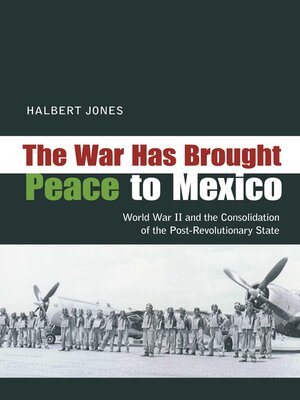The War Has Brought Peace to Mexico
ebook ∣ World War II and the Consolidation of the Post-Revolutionary State
By Halbert Jones

Sign up to save your library
With an OverDrive account, you can save your favorite libraries for at-a-glance information about availability. Find out more about OverDrive accounts.
Find this title in Libby, the library reading app by OverDrive.



Search for a digital library with this title
Title found at these libraries:
| Library Name | Distance |
|---|---|
| Loading... |
Although the battlefields of World War II lay thousands of miles from Mexican shores, the conflict had a significant influence on the country's political development. Though the war years in Mexico have attracted less attention than other periods, this book shows how the crisis atmosphere of the early 1940s played an important part in the consolidation of the post-revolutionary regime.
Through its management of Mexico's role in the war, including the sensitive question of military participation, the administration of Manuel Avila Camacho was able to insist upon a policy of national unity, bringing together disparate factions and making open opposition to the government difficult. World War II also made possible a reshaping of the country's foreign relations, allowing Mexico to repair ties that had been strained in the 1930s and to claim a leading place among Latin American nations in the postwar world. The period was also marked by an unprecedented degree of cooperation with the United States in support of the Allied cause, culminating in the deployment of a Mexican fighter squadron in the Pacific, a symbolic direct contribution to the war effort.
Through its management of Mexico's role in the war, including the sensitive question of military participation, the administration of Manuel Avila Camacho was able to insist upon a policy of national unity, bringing together disparate factions and making open opposition to the government difficult. World War II also made possible a reshaping of the country's foreign relations, allowing Mexico to repair ties that had been strained in the 1930s and to claim a leading place among Latin American nations in the postwar world. The period was also marked by an unprecedented degree of cooperation with the United States in support of the Allied cause, culminating in the deployment of a Mexican fighter squadron in the Pacific, a symbolic direct contribution to the war effort.







